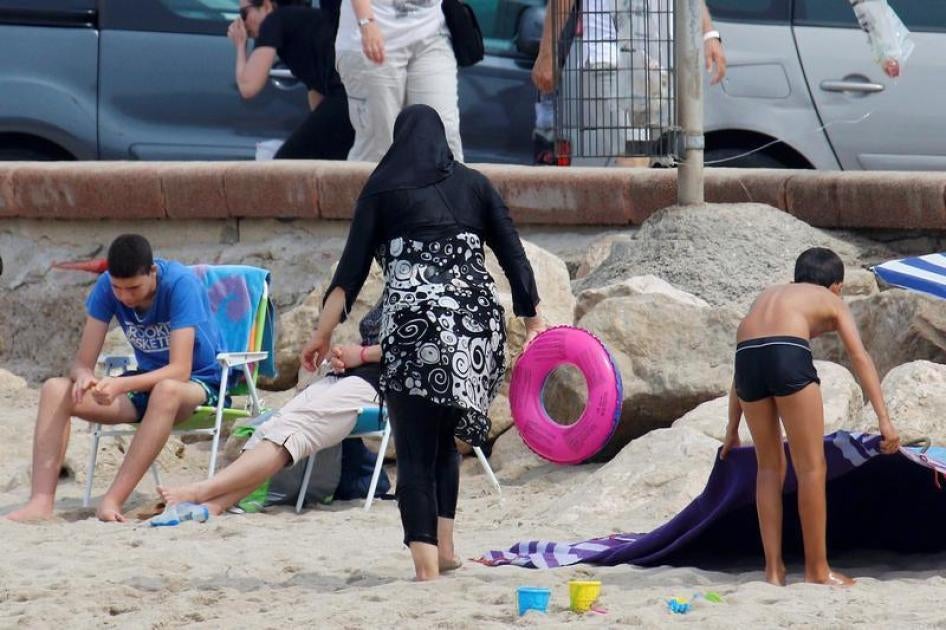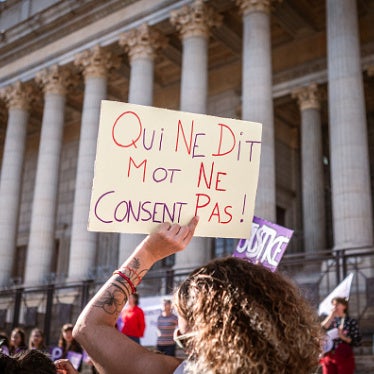A woman is confronted by state officials in a public place and forced to change her clothing, while another is fined for failing to wear “an outfit respecting good morals and secularism.” Unbelievable in a country like France? No, it happened on French Riviera beaches just this week.
These incidents follow a series of municipal decrees de facto banning burkinis, and, apparently, any other skin concealing beach outfits worn by Muslim women, in about 30 French towns.
The bans were adopted in the aftermath of two horrific terror attacks: the truck attack in Nice and the church killing in Saint-Etienne-du-Rouvray.
Although the actual burkini was designed to allow observant Muslim women in Australia to go to the beach and work as lifeguards, in France it is now seen by some as a threat to public security, and a form of “enslavement” in the words of the Prime Minister Manuel Valls, who supports the bans.
The Council of State, France’s highest administrative court, is considering an appeal against the bans by the French Human Rights League. Previous efforts to challenge the bans in court have so far failed. In Nice, the administrative court rejected the appeals brought before it by the French Human Rights League and the Collective Against Islamophobia in France, and instead confirmed a previous decision, taken on August 13. The judges ruled that banning the burkini is “necessary, appropriate and proportionate to the aim pursued in terms of the protection of public order and security” in the context of terrorist threats.
But what in fact these bans serve to do is create a dangerous and absurd confusion between how some Muslim women choose to dress and the despicable terrorist attacks that French people, of all religions, have suffered.
Absurd because under the pretext of defending France’s republican principles and women’s rights, the burkini ban actually amounts to banning women from the beach, in the middle of the summer, just because they wish to cover their bodies in public. It’s almost a form of collective punishment against Muslim women for the actions of others.
Instead of encouraging all French people to live together peacefully and promoting equality and fundamental freedoms, which is the responsibility of the public authorities, the burkini ban and the revival of the endless controversy on religious symbols linked to Islam merely stigmatize practicing Muslim women, exclude them from public spaces – and sharing those spaces with their families and friends – and deprive them of their rights to autonomy, to leisure activities, to wear what they chose, and of course to practice their faith.
Not to mention the ridiculous argument about hygiene: how can one seriously think that burkinis are less hygienic than wet suits, or long-sleeve T-shirts worn by kids to protect them from the sun?
But the burkini bans are more than just unfair and discriminatory, they are also dangerous. Because linking a bathing suit to terrorist threats, without any facts to justify such a statement, endorses false and harmful narratives about Muslim communities and risks increasing tensions between communities, while hardening the feeling of injustice felt by some Muslims in France.
When the Nice administrative court argues that police cannot “in the context of the state of emergency (…) protect the expression of religious belief” – particularly, it seems, when it relates to the Muslim community. The burkini ban is also a concrete example of the very real dangers an extended state of emergency poses to basic rights and equality: a risk about which Human Rights Watch has repeatedly warned.
As it’s dominated the French political and media landscape for the past few weeks, the burkini ban has gone from a laughing-stock to a source of deep shame. During a time of national emergency, surely French police have better things to do than humiliate women on the country’s beaches.










